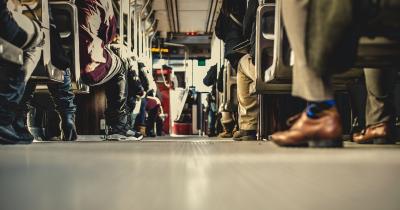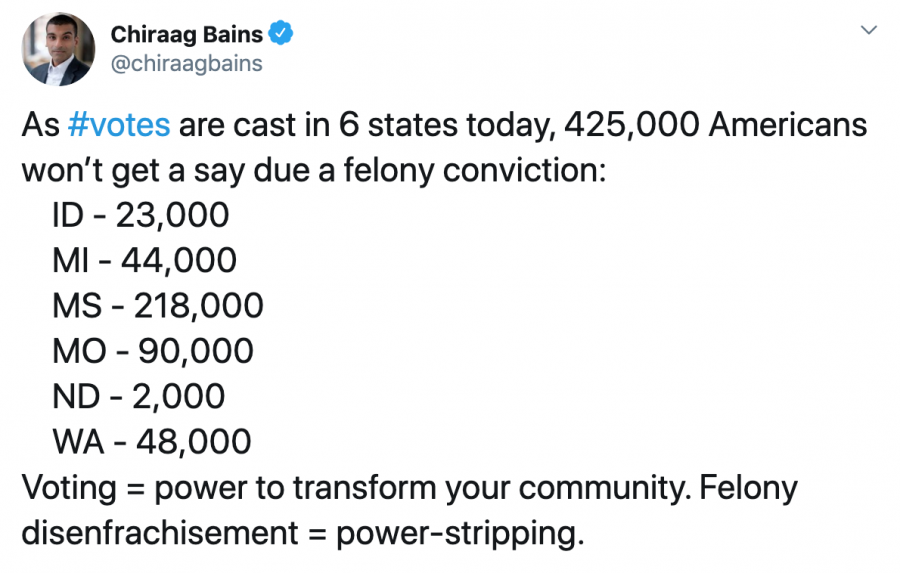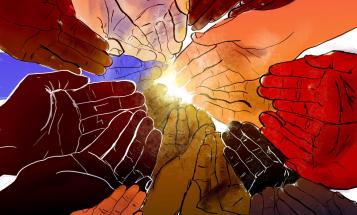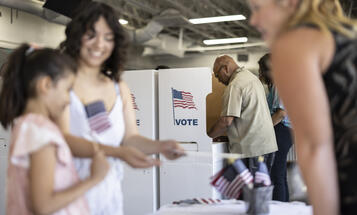
Hundreds of Thousands of People Aren’t Getting a Say in the 2020 Primaries
Felony disenfranchisement is one of several ways people get stripped of their power.

This week, we share the feelings of uncertainty and anxiety that arise in the midst of this global pandemic. So many people say they are “feeling powerless” that we must ask ourselves who holds the power to take action in this crisis, who doesn’t, and why?
Tracing the lines of power tells us so much about what we must do right now.
Democratic Reform
1. We need a truth and reconciliation process for the Trump era.
“Sooner or later, Donald Trump will cease to be president. But whether we emerge from the Trump era as a true democracy depends on more than his removal; it depends on whether we transcend Trumpism as an ideology and a policy agenda,” Demos President K. Sabeel Rahman explains in In These Times. Read more
2. Let’s talk about why hundreds of thousands didn’t get a say in Tuesday’s primaries.
3. Jailed Georgia voters will be among those whose voices are heard this year.
This week, we worked with the Southern Center for Human Rights to mail a second round of 1,000 nonpartisan, voter education packets containing know-your-rights documents and absentee ballot applications to people incarcerated in Gwinnett, Glynn, and Randolph County jails. These packets will arrive ahead of Georgia’s absentee ballot request deadline. Read our press release
If you missed it, read our email on our work to defend the rights of jail detainees. It includes a spotlight on this work in Georgia, among other things.
4. A campaign finance solution has been sitting on McConnell’s desk for a year.
This past Sunday marked the 1 year anniversary of the House passing H.R. 1, the For the People Act. Among its many fixes, H.R. 1 would blunt the distorting influence of a donor class that looks nothing like America.
Economic Justice
5. The coronavirus could cause a long-term higher ed crisis.
Years of budget cuts and failure to address basic student needs make higher education potentially unequipped to deal with a crisis like this. Read why
6. The outbreak is finally forcing U.S. companies to change their sick leave policies.
As Demos’ Amy Traub points out, it is a necessary policy shift and it’s long overdue. Workers at companies like Walmart, Olive Garden parent company Darden Restaurants, and REI have been calling for better working conditions—including improved sick time policies—for a long time. Read more





